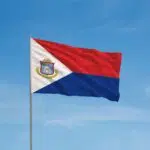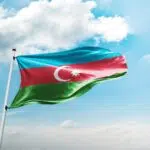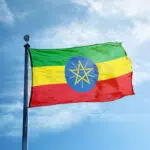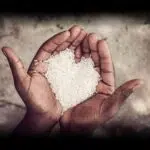The Caribbean island of Saint Martin celebrates the anniversary of the day they abolished slavery on Abolition Day, which takes place on May 28. An important day for all French colonies that adopted this law, Abolition Day in Saint Martin is also observed with loads of fanfare and commemorative events. Businesses, schools, and other places are closed for this national holiday, and in past years, have also held week-long celebrations around this time.
History of Abolition Day (Saint Martin)
Like many other Caribbean islands that were once French colonies, Saint Martin, too, has a storied history of enslavement and enforced labor. The land was already inhabited by indigenous people when Christopher Columbus sighted Saint Martin, then called ‘Soualiga’ or ‘Island of Salt.’ He claimed it as Spanish territory immediately after, although the Spanish chose to settle in richer, much more profitable colonies. They were also the first to import slaves to the island, but the numbers remained small as the Spanish focused their attention on other lands.
This mostly left-alone island attracted French and Dutch attention, the former because they wanted to colonize multiple Caribbean islands and the latter. After all, Saint Martin was a convenient halfway stop between their colonies. By 1648, the Spanish had deserted the land, and after some initial territorial conflicts, the French and Dutch each took over a portion of the island for their own. As with every interesting piece of history, there’s a legend attached to this division of land too. According to the story, the two sides held a contest, and one soldier from each side had to walk in either direction at the same time. The land they covered until a set period would be theirs. The tale ends with the Frenchman using a shortcut to cover more ground and the Dutchman getting distracted, which led to the French holding more territory in Saint Martin. While a very popular story at the time, the size and proximity of the French military’s warships likely resulted in them getting a bigger share of the land. This division would not hold steady in the years to follow, as the French and Dutch had various border skirmishes right up until 1815 when the island was divided once and for all.
Through it all, the production of various cash crops — cotton, tobacco, sugar — increased twofold on the island. And with more production came an increased demand for labor, specifically, indentured labor. Immense numbers of slaves were brought in to work on these plantations, so many that their numbers soon began to outstrip the slave owners. As with other colonies, slaves revolted here too, protesting the mistreatment and oppression by owners. When the French abolished slavery in the 19th century, they adopted this law on the French side of Saint Martin too. The slaves on the Dutch side of the island began to demand their freedom as well and threatened to escape to the French side of Saint Martin if their demands were not met. The local authorities relented and allowed emancipation on the island, although it would be 15 years until the Dutch abolished slavery in all their colonies, making the slaves on the island truly free.
Abolition Day (Saint Martin) timeline
Christopher Columbus names the new island he sees “Isla de San Martín.”
The French and the Dutch start to colonize the recently evacuated Saint Martin.
The Dutch and French frequently change their borders on the island, but agreed to a 39-61 percent share, respectively.
The French decide to abolish slavery in all their colonies, including the French side of Saint Martin.
Abolition Day (Saint Martin) FAQs
Why is St. Martin half French and half Dutch?
Saint Martin is still half French and half Dutch because the colonists settled on this island in the 1600s, and have co-governed the island ever since.
What are people from St. Martin called?
People from Saint Martin can either be Saint Martiners, Saint-Martinois for the French side, or Sint Maarteners for the Dutch side.
Which is better the Dutch or French side of St. Martin?
This completely depends on the individual. Those preferring a more fast-paced holiday will likely prefer the Dutch side, and those with a yen for laid-back fun will like the French side.
How to Observe Abolition Day (Saint Martin)
Attend commemorative events
The festival has been honored in different ways around the world, and Saint Martin is no exception. Choose from speeches and talks about civil rights, awareness marches, concerts, parades, and more, and participate virtually or in person.
Talk about slavery
Start a dialogue about the history of slavery around the world, and in Saint Martin. Get more people involved in this discussion too.
Learn about the effects of enslavement
Let the conversation about the history of slavery lead you into a discussion about its effects over the years. Study and understand what the years of enslavement have taught the world, and how they changed us.
5 Cool Facts About Saint Martin
One island, two names
To create a distinct identity, the French took to calling their side of the island 'St. Martin,' which the Dutch called their side 'Sint Maarten.'
It's the world’s oldest open border
The Dutch and French sides of the border have been open so long — since the Treaty of Concordia in 1648 — that they are officially the oldest open-border country in the world.
The only Caribbean island with two carnivals
The French side celebrates their carnival in February, and the Dutch in April.
Tourism is their main occupation
The Dutch side started in the 1950s, and the French side some decades later, but today, both sides are primarily focused on tourism to boost their economy.
The Dutch side is famous for beaches
St. Maarten even holds the world record for having the most number of beaches on its small surface.
Why Abolition Day (Saint Martin) is Important
We get to explore a unique island
Three official languages, a leading tourist destination in the Caribbean, a culinary powerhouse blending multiple cuisines from different cultures, and a uniquely binational character — is it any wonder Saint Martin attracts so much attention? We're loving this chance to get to know both sides of this Caribbean island a bit more.
It honors a hard-won fight
The war against slavery was a long one, fought for over three centuries. While the dates may differ in different countries, every Abolition Day celebrates this one historic moment — the day we officially recognized equal rights for all.
Shows us we are not alone
While islands like Saint Martin may have their own way of celebrating Abolition Day, the festivities also remind us that different countries have celebrations on different days, but for the same cause. It helps to unite us all against a common evil.
Abolition Day (Saint Martin) dates
| Year | Date | Day |
|---|---|---|
| 2026 | May 28 | Thursday |
| 2027 | May 28 | Friday |
| 2028 | May 28 | Sunday |
| 2029 | May 28 | Monday |
| 2030 | May 28 | Tuesday |















